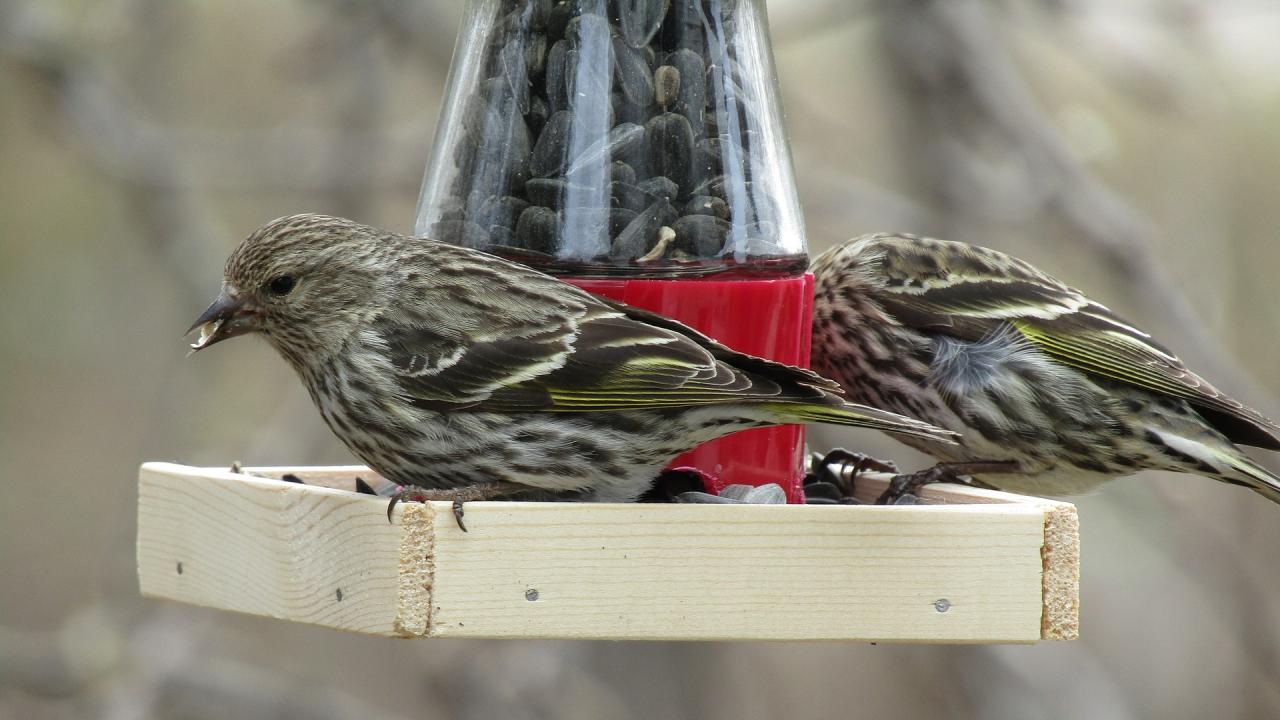
Salmonellosis in Wild Songbirds
The Centers for Disease Control (CDC) recommends these steps to clean and disinfect a bird feeder:
- Scrub feeder with warm, soapy water to remove dirt.
- Rinse with clean water to remove soap.
- Soak in bleach (9 parts water and 1 part bleach) for at least 10 minutes.
- Rinse thoroughly with water to remove any remaining bleach solution.
- Let it dry in the sun before refilling it.
- Wash your hands with soap and water after touching your bird feeder.
Salmonellosis in Songbirds
Salmonellosis is an infection caused by bacteria in the genus Salmonella. Periodic outbreaks (often the result of infection with Salmonella typhimurium) are observed in migratory songbirds, such as pine siskins and some species of goldfinches. Other species that come into close contact with finches at bird baths and feeders, such as sparrows, are also at risk. Infection occurs when birds ingest food or water contaminated with Salmonella, or come into contact with objects, such as bird feeders, that are contaminated with feces from infected birds.
The disease can spread rapidly, especially in areas where large numbers of birds congregate. It can cause high mortality, with most infected birds dying within 24 hours. Infected birds may exhibit weakness, difficulty breathing, ruffled feathers, and an unwillingness to move. In California, dead birds can be reported to the California Department of Fish and Wildlife Investigations Laboratory.
Salmonellosis is a zoonotic disease, meaning that it can be transmitted between animals and humans. In humans, symptoms of salmonellosis can include fever, stomach cramps, and diarrhea. Most people recover within a week, but severe cases can require hospitalization. Pets can carry Salmonella bacteria, which can then be spread to people, so dogs and cats should be kept away from bird baths, feeders, and surrounding areas.
Some steps you can take to ensure the health and safety of your family, and protect wild songbirds include:
- During outbreaks, remove bird feeders and baths to reduce disease transmission until birds have migrated for the spring.
- Clean bird feeders and baths regularly and when they are dirty (Wear gloves while cleaning). Do not clean bird feeders in the kitchen or other places where food is prepared or stored.
- Do not touch or feed wild birds with bare hands.
- Wash your hands with soap and water after handling or touching a bird feeder or bird bath.
- Wash your hands after touching your pet.
For more information:
Salmonella Outbreak Linked to Wild Songbirds, Centers for Disease Control
Salmonellosis Outbreak Causing Songbird Deaths, California Department of Fish and Wildlife
